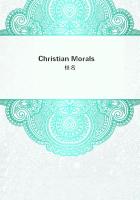Still among the number of its amateurs was once found Potemkin, one of the most active and respected Russian ministers of state.I see a smile of contempt upon the lips of many of my readers, who would not think it strange that any one should play at cards from 揺ve till morn? provided it were in company.But how incomparably superior is this solitary game to many social games梥o often antisocial in their consequences! The first, a pure and simple amusement, stripped of everything injurious, free from passion, avarice, loss, and regret.It is gaming enjoyed by some happy individuals, in that state in which legislators may desire, but cannot hope that it will ever be enjoyed by all throughout the whole world.How much better was this minister occupied than if, with the Iliad in his hand, he had stirred up within his heart the seeds of those ferocious passions which can only be gratified with tears and blood.
As men grow old, they lose their relish for the simple amusements of childhood.Is this a reason for pride? It may be so梬hen to be hard to please, and to have our happiness dependent on what is costly and complicated, shall be found to be advantageous.The child who is building houses of cards is happier than was Louis XIV.when building Versailles.
Architect and mason at once, master of his situation and his materials, he alters and overturns at will.Diruit, edificat, mutat quadrata rotundis :
and all this at the expense neither of groans nor money.The proverbial expression of the games of princes , may furnish us with strong reasons for regretting that princes should ever cease to love the games of children.
A reward was offered by one of the Roman emperors to whoever would invent a new pleasure, and because this emperor was called Nero , or Caligula , it has been imputed to him as a crime:
as if every sovereign, and even every private individual, who encourages the cultivation of the arts and sciences were not an accomplice in this crime.The employment of those critics, to whom we have before referred, tends to diminish the existing stock of our pleasures: the natural effect of increasing years, is to render us insensible to those which remain:
by those who blame the offer of the Roman emperor, these critics should be esteemed the benefactors of mankind, and old age the perfection of human life.
In league with these critics are the tribe of satirists梩hose generous men, who without other reward than the pleasure of humbling and disfiguring everything which does not please them, have constituted themselves reformers of mankind! The only satire I could read without disgust and aversion, would be a satire on these libellers themselves.Their occupation consists in fomenting scandal, and in disseminating its poisons throughout the world, that they may be furnished with pretexts for pouring contempt upon everything that employs or interests other men.By blackening everything and exaggerating everything (for it is by exaggeration they exist) they deceive the judgments of their readers:梚nnocent amusements, ludicrous eccentricities, venial transgressions and crimes, are alike confounded and covered with their venom.Their design is to efface all the lines of demarcation, all the essential distinctions which philosophy and legislation have with so much labour traced.For one truth, we find a thousand odious hyperboles in their works.They never cease to excite malevolence and antipathy:
under their auspices or at least under the influence of the passions which animate them, language itself becomes satirical.Neutral expression can scarcely be found to designate the motives which determine human actions:
to the words expressive of the motive, such as avarice, ambition, pride, idleness , and many others, the idea of disapprobation is so closely, though unnecessarily, connected, that the simple mention of the motive implies a censure, even when the actions which have resulted from it have been most innocent.The nomenclature of morals is so tinctured with these prejudices, that it is not possible, without great difficulty and long circumlocutions, simply and purely, without reprobation or approbation, to express the motives by which mankind are governed.Hence our languages, rich in terms of hatred and reproach, are poor and rugged for the purposes of science and of reason.Such is the evil created aud augmented by satiric writers.
Among rich and prosperous nations, it is not necessary that the public should be at the expense of cultivating the arts and sciences of amusement and curiosity.Individuals will always bestow upon these that portion of reward which is proportioned to the pleasure they bestow.
Whilst as to the arts and sciences of immediate and those of more remote utility, it would not be necessary, nor perhaps possible, to preserve between these two classes an exact line of demarcation, the distinctions of theory and practice are equally applicable to all.
Considered as matter of theory every art or science, even when its practical utility is most immediate and incontestable, appears to retire into the division of arts and sciences of remote utility.It is thus that medicine and legislation, arts so truly practical, considered under a particular aspect, appear equally remote in respect to their utility with the speculative sciences of logic and mathematics.
On the other hand, there is a branch of science for which, at first, a place would scarcely have been found among the arts and sciences of curiosity, but which, cultivated by industrious hands, has at length presented the characters of incontestable utility.桬lectricity, which, when first discovered, seemed destined only to amuse certain philosopher by the singularity of its phenomena, has at length been employed with most striking success in the service of medicine, and in the protection of our dwellings against those calamities, for which ignorant and affrighted antiquity could find no sufficient cause but the special anger of the gods.
That which government ought to do for the arts and sciences of immediate and remote utility, may be comprised in three things?.To remove the discouragements under which they labour; 2.To favour their advancement; 3.To contribute to their diffusion.













